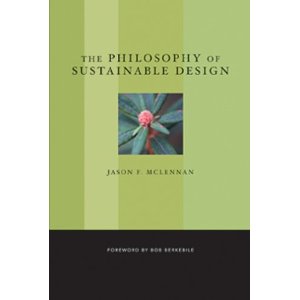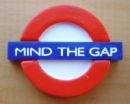 Astonishing Powerful, Easy to Read, MUST Be Reprinted
Astonishing Powerful, Easy to Read, MUST Be Reprinted
February 2, 2008
Richard J Spady
This book was recommended to me by Joseph McCormick, former Army Ranger, world-class philosopher, and one of the founders of Reuniting America, 110 million strong and totally transpartisan in nature. We both agree with Peter Peterson's views in Running On Empty: How The Democratic and Republican Parties Are Bankrupting Our Future and What Americans Can Do About It. None of the political candidates today, with one possible exception, understand Epoch B Swarm Leadership (I cannot load images for out of print books, please see the four non-fiction images at this link: Managing the Nonprofit Organization), and even the exception keeps talking about one America, Democrats and Republicans together. This otherwise erudite man fails to understand that over half of the two parties' members no longer identify with the extremist spoils system; that Independents are fully unified as a third party; and that Libertarians, Greens, and Reforms are now a fourth slice of America that must be respected. This book is the ONE BOOK that I would recommend to anyone who wants to be a transpartisan leader and co-steward of America the Beautiful.
If you are completely unfamiliar with the broad literature on co-intelligence, wisdom councils, citizen councils, large-scale human collaboration, this one book is a superb overview and reflects over two decades of pioneering by the authors.
On the other hand, if you are fully or even partially familiar with the books I list below, this book is a marvelous tightly integrated yet smoothly presented stand-alone which won my immediate respect because of the thoroughness of the authors in respecting and citing other pioneers.
Since it is out of print, but I was able to get a perfect-condition signed copy from 6 Finches (5 stars, great deal), I want to point out that the hard-copy cover that does not appear on this Amazon page is world-class, and I believe this book should be reprinted in paperback and also offered free online.
The Foreword by Rev Dr William Ellington and William Cane of the Forum Foundation is alone worth the price of the book. It is a spectacular erudite and yet down to earth overview, and alone, captures the entire book.
This is a solution oriented book, one that represents the view that the meaning of life is social–interpersonal–the collective pursuit of happiness. The book calls for massive social innovation, and implicitly, addresses precisely how we need to deal with the fact that all three branches of the government are broken, the two political parties are craven and corrupt, and most of our other institutions, including the so-called forth estate of the media, are equally decrepit. To take just one example from another book, The New York Times wrote 70 editorials on Iraq, and never once mentioned international law or morality.
The book offers nine pages of quotes from others, and the first part of the book stresses–without any excessive verbiage–that the spiritual core of science was lost; that “science was not only not inevitably progressive but not even inevitably benign. Citing Eltron Mayo, material progress has retarded human collaboration. Further on: slogans, distorted news, and propaganda all undermine diversity of views and potential of human collaboration.
The book states clearly that the current top-down elitist system of government and corporate management is broken. Further on in the book they point out that authoritarian “rolism” denies and deprives the individual of the right to be heard; the right to participate in decisions about their life and the life of their community.
Throughout the book the authors stress that the ultimate source of power is the people themselves; that civic values and the ability to collaborate to discover and communicate and effect common good, is the heart of civilization.
They introduce the concept of Many-to-Many (MTM) communications, and the last half of the book is full of examples including protocols and forms that can be used for large scale deliberative democracy where human opinions are presented by machine and polarization-consensus visualized and returned to the human participants as feedback and inspiration.
This book is at root about enabling, leveraging, and effecting large-scale collaboration that is inherently moral and legitimate.
Below are concise snapshots of each of the main sections of the book.
Basic Attitude: respect, listen, accept or reject, modify.
Learning: damns our rote one-way (didactic) learning, calls for activating and challenging all children from the earliest age with social network and information sharing skills.
Leadership: decisions must be made at the lowest level at which BOTH sufficiency of information and sufficiency of resources can be combined. Centralization of leadership is BAD, dictators (we have 44 of them, 42 best pals of both Clinton-Gore and Bush-Cheney) will not prevail.
Authority: derived from the consent of the governed. Moral authority is the only authority impervious to legal authority that exceeds its mandate as Bush-Cheney and the doormat Congress have done these past eight years. Democracy in the ideal is inspired society in pursuit of happiness for ALL.
Politics: best if completely open, interactive, maximizing understanding, collaboration, and engagement across all boundaries at all levels. I agree, and this is one reason we need Electoral Reform legislation that puts both the Democratic and Republican party machines OUT OF BUSINESS.
Prophecy: Golden Rule, honesty, collaboration instead of pyramidal top-down mandate. Reuniting America uses the word “transpartisanship.”
Administrative (I prefer Stewardship): Diagnose, theorize, accomplish, and review.
Helping Professions: characterized by direct human interaction and the need to recognize and react instantly, build trust, communicate vision.
Zeitgeist: Spirit-of-the-Time, Group must find its soul and its collective understanding. Constant feedback, spirit of listening, vital. Must be impersonal in the good sense, symbolic dialog is rooted in moral authority. We must strive for common opinions, reflections, and interests. I am reminded of Native American councils focusing on total consensus (don't stop until achieved), seventh generation thinking, and the Great Law of Peace adopted by the Five Nations. The right to be heard, to participate in decisions affecting one, one's family, one's community. The ultimate challenge: how to activate and channel human responsibility.
Natural Factors: diagnosis improved, learning improved, peace prospects improved, power of values.
Civilization Theories: unified social field, social quantum mechanics, open societies herald a strategy for peace. Quote Wheatley, “Imagine ourselves as beacons towers of information.” Life is One; One from Many (Dee Hock's book title); Unity in Community.
MTM: communications up and down left and right, forward and back. This reminds me of Paul Ray's brilliant world on “The New Political Compass,” from which I derived a one-page summary of what some of us are now calling “the new progressives” (not to be confused with MoveOn.org's rather myopic assumption that the Democratic Party is the only source of progressive ideas. I certainly disagree, indeed my ideal ticket would be Huckabee-Obama trading places every four years for sixteen years; with Bill Bradley and Susan Collins and a transpartisan sunshine cabinet funded by Michael Bloomberg with Ralph Nader as Chief of Staff, all leading a national conversation based on an online balanced budget open to discussion by all.
Tools: the last part of the book is equally impressive, and the authors present Fast Forum for rapid large scale collaboration and deliberation; importance of mainstreaming reality; social resolution power, Symbolic Dialog as code for human opinions, machine visualization, feedback, and reentry into dialog. I note their phrase, knowledge is in books, wisdom is in minds. The end with hard but civil comments about a social conspiracy and bureaucratic inertia.
Applications: They outline, including illustrative documents and survey forms, how their ideas could be applied at the state, local, and social levels, and especially in education, where they recommend teaching social knowledge and networking from day one; gaming the curriculum with the students' active participation, exploring clean-sheet “how it might work,” and also exploring new forms of moral discussion in which “right or wrong” are set aside to allow for a full embrace of diversity.
There are a number of relevant appendices, the first of which discusses how government and corporate power today are neither responsive nor legitimate. There are conflicts of interest, and only a massive social innovation powered by citizens will break through into new modes of self-governance.
At the end I am introduced to the Dodd Institute for Social Innovation, and I am impressed.
This is a sensational book, and it should be reprinted or at least offered free online. Here are other books that I have found valuable. See also the four images from Earth Intelligence Network that I offer to help illustrate how the 24 co-founders of EIN have absorbed and now give back the kind of wisdom that this book represents. See also:
The Tao of Democracy: Using Co-Intelligence to Create a World That Works for All
Society's Breakthrough!: Releasing Essential Wisdom and Virtue in All the People
The World Cafe: Shaping Our Futures Through Conversations That Matter
All Rise: Somebodies, Nobodies, and the Politics of Dignity (BK Currents)
How to Change the World: Social Entrepreneurs and the Power of New Ideas, Updated Edition
A Power Governments Cannot Suppress
Breaking the Real Axis of Evil: How to Oust the World's Last Dictators by 2025
The Unconquerable World: Power, Nonviolence, and the Will of the People
At Earth Intelligence Network, there are 52 tough questions with transpartisan answers; over 1000 book reviews sorted by threat, policy, or other aspects of achieving the goals that these two authors; and the first of three free books online, COLLECTIVE INTELLIGENCE: Creating a Prosperous World at Peace.










